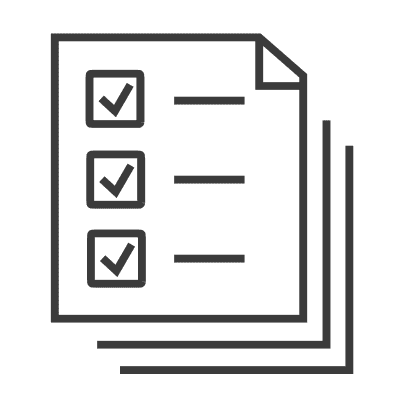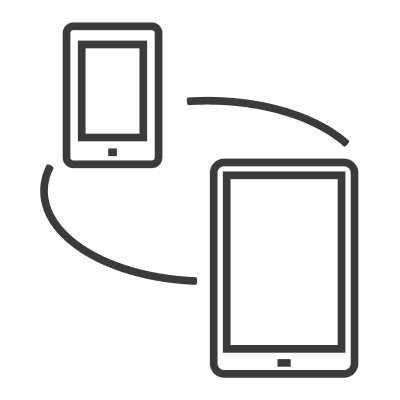Across the globe, we’re seeing a clear need for practices to set a COVID-19 operation plan. This isn’t business as usual and many practices are adjusting procedures and responding quickly to the shifting environment. Practices are implementing the following measures:
1: Plan
- Curbside service & vehicle waiting room — Practices have begun offering curbside pickup of patients and delivery of products so that clients can safely remain in their vehicles. They’re also instructing clients to wait in their vehicles, with some practices only allowing staff members inside the practice.
- Postpone non-critical visits — Canceling well visits, elective procedures, and boarding to reduce demand, while also rebooking appointments for later in the year if possible.
- Double down on cleaning — Practices are updating their cleaning policies based on CDC and AVMA recommendations and educating employees on COVID-19 best practices, including staying home when sick.
- Extend appointment times — In order to allow for proper disinfecting and cleaning, practices are extending the length of appointments.
- Remove communal items — To prevent unnecessary contact, practices are restricting or removing communal items such as coffee, while making hand sanitizer available to all.
- Restrict purchase quantity — Restricting the number of items clients can purchase is helping some practices’ inventory levels while enabling all patients to be served.
- Cater to chronic conditions and the elderly — Some practices are contacting elderly clients and those whose pets have chronic conditions to make sure they have a plan in place and are well cared for.
- Revisit HR policies — Many practices are having to adjust sick time and leave policies for employees, while also possibly restricting overtime. Some are even cross-training employees in preparation for covering absences.
- Order & conserve supplies — Practice and inventory managers are stocking up but not going overboard on supplies. Many are conserving personal protective equipment (PPE) as a way to reduce PPE demand and help human hospitals.
2: Communicate
 It’s clear that communication is key during a crisis.
It’s clear that communication is key during a crisis.
Practices are having to go above and beyond to let clients know that they’re still open. Many are receiving a flood of calls from concerned clients, and wise practices are focusing on being kind to clients and coworkers during these challenging times.
Practices have been updating the following with any changes in hours and procedures:
- Website and blog
- Social media
- Phone recordings
- Practice signs
We’re also seeing practices communicate with clients via email, text, and app.
The U.S. Chamber of Commerce offers a customizable flyer template for businesses to download, edit, and share with customers.
Our friends at Veteos are offering four free, personalized videos to help educate clients about pets and COVID-19. Practices can customize each video with their practice logo and information.
3: Adapt
 In addition to reevaluating operation plans on a daily basis, we’re also seeing an increased focus on the customer experience and future planning now that a new normal is taking shape. Here are a few examples of tactics being researched and implemented.
In addition to reevaluating operation plans on a daily basis, we’re also seeing an increased focus on the customer experience and future planning now that a new normal is taking shape. Here are a few examples of tactics being researched and implemented.
- Home delivery — Many practices are implementing online ordering and a vet-sponsored home delivery system, such as those offered by Vetsource and others. Practices that already offer home delivery are now explicitly communicating this to clients and encouraging them to utilize it.
- Telemedicine — Wise practices are also researching and implementing telemedicine capabilities. Vet2Pet outlined a DIY telemedicine solution for veterinary practices. Again, practices that are already equipped with telemedicine are actively promoting it to clients.
- Alternative payment plans — Practices are also planning for future economic issues by researching and offering alternative payment plans for clients who may be financially impacted by shutdown measures.
- Economic support — We’re also seeing practices research state-specific economic support and insurance options for practices. There may be possible unemployment benefits and medical leave extensions for those impacted by COVID-19. There may also be low rate small business loans available.
4:Practice self-care

Just like the airlines tell us, in case of emergency we have to put our own oxygen mask on first before helping others. During a crisis, it’s even more important to practice good self-care.
Taking frequent breaks is crucial to wellbeing. Go for a walk outside, get lost in a good book, do whatever you can to safely distract yourself and give yourself a break from the 24/7 news cycle.
Encourage employee self-care and check in on them regularly. Be vigilant and watch for signs of burnout. Change can be taxing mentally, physically, and emotionally.
We will get through this
We are in this together. Now more than ever we need to support each other where we can. Please reach out if you have questions or concerns and if there’s anything we can help you with, know that we are here for you.
Stay safe and be well.



